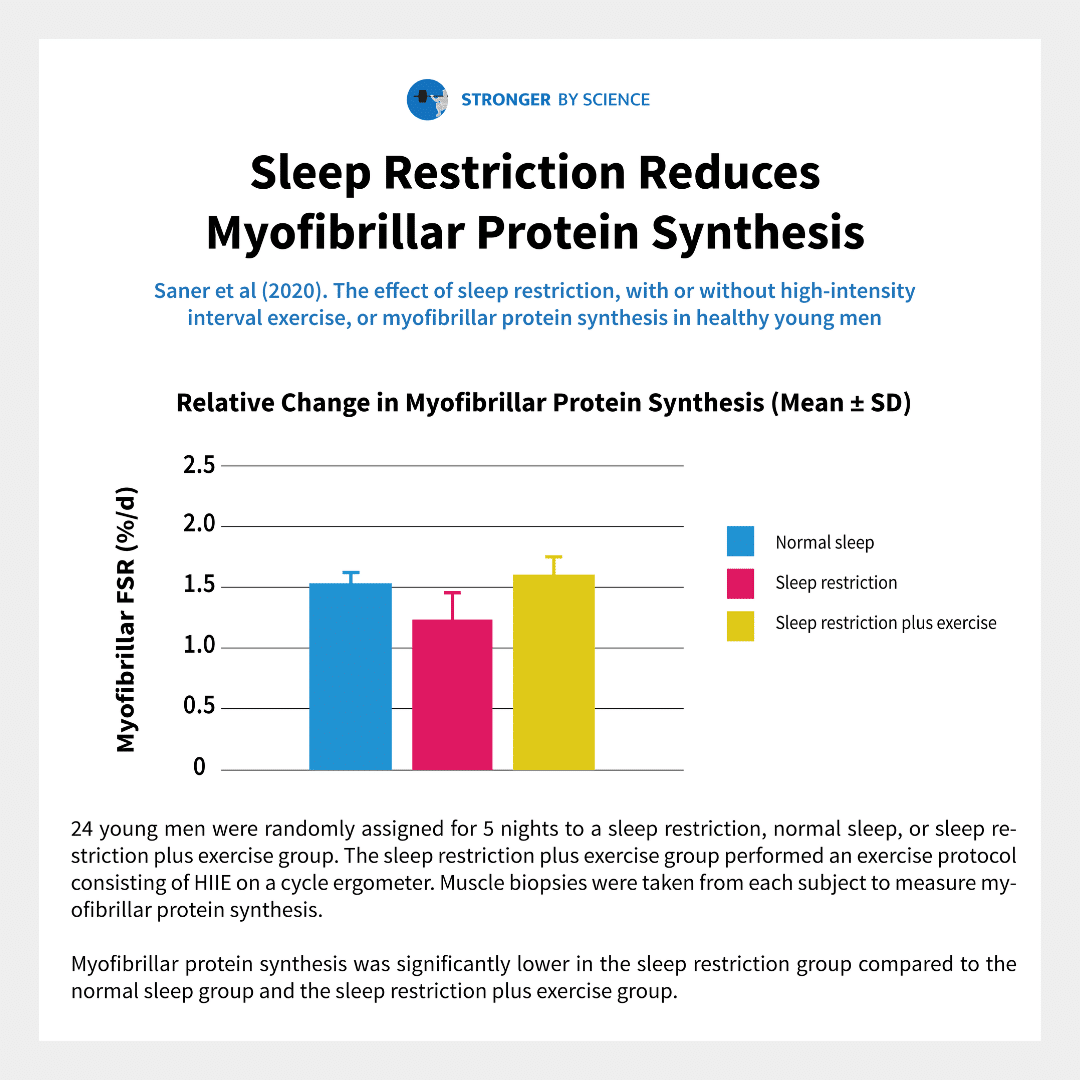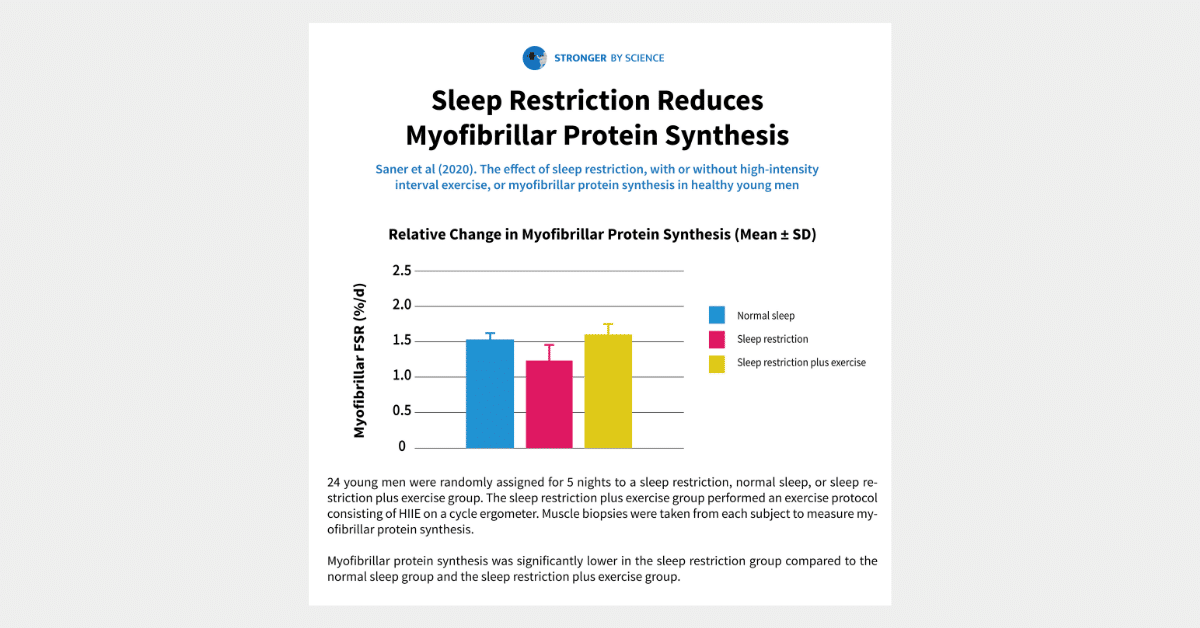Sleep plays an extremely important role in a variety of health outcomes. For lifters, recent studies have shown that both sleep quality and duration affect training performance and body composition.
Additionally, some data has demonstrated that insufficient sleep results in a greater reduction of muscle mass during periods of calorie restriction.
This study compared the effect of three different sleep interventions, with or without the addition of high-intensity interval exercise (HIIE), on myofibrillar protein synthesis and its molecular signaling pathways.
24 young, healthy men were randomly assigned for 5 nights to a sleep restriction (SR), normal sleep (NS), or sleep restriction plus exercise group (SR+EX). The SR and SR+EX groups were limited to 4 hours of time in bed each night, while the normal sleep group was allotted a full 8 hours.
Additionally, the SR+EX group performed a HIIE protocol during days 2-4 of the intervention. Training consisted of 10, 60-second intervals on a cycle ergometer with 75 seconds of recovery between each interval.

Muscle biopsies from the vastus lateralis were taken from each subject pre- and post-intervention. The researchers found that myofibrillar protein synthesis was significantly lower in the SR group compared to the NS and SR+EX groups. There were no significant differences between the NS and SR+EX groups. Also, there were no significant changes in the molecular markers associated with protein synthesis (i.e. mTOR and its related targets) in all groups.
The bottom line: Given that the NS and SR+EX groups experienced similar protein synthesis, these findings suggest that HIIE may serve as a potential therapeutic for offsetting the negative effects of short-term sleep restriction. However, this study also suggests that in the absence of exercise, sleep restriction may lower rates of muscle protein synthesis. Notably, there wasn’t a normal sleep group that also performed exercise, but it’s possible (or even likely) that normal sleep + exercise would still outperform reduced sleep + exercise.




